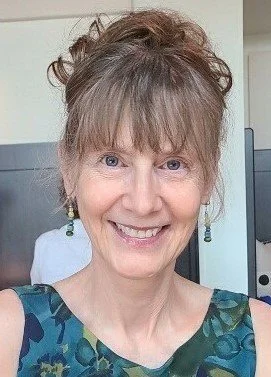When there is harm, can there be transformation? Virtual Series on restorative pathways and practices toward healing and recovery for everyone
Dates:
Mondays May 6, 13, 20, June 3, 2024
Time: 3-5pm
Location: Virtual
Cost: $250 for one person, $350 for 2 people in an organization or group (sliding scale available, see below)
Program Description:
Harm is an inevitable part of being human - harm happens in our relationships, families, classrooms and school buildings, in our companies and organizations, and in our communities. Across environments, when harm happens, punitive structures have defined much of our experience in the United States from dominant HR practices and employee discipline, to exclusionary discipline practices in schools, to incarceration.
This class will explore alternative responses to harms that prioritize healing, repair, and building healthy communities and inclusive environments for those who are justice impacted. From this foundation, participants will then begin to consider and practice together how we can each build toward an entire society that roots out our culture of harm, starting from our own lives and places of influence. Lessons and examples discussed in our 4 weeks together will be many and expansive and relevant across contexts to support those of us considering practices and policies that center accountability, care, in our actions and in our institutions.
This class will be led by justice-impacted facilitators with experience in restorative justice. The facilitators are part of the Freedom & Captivity Collective, which designed the curriculum.
CEU’s available upon request
Payment agreement and scholarships
Conscious Revolution is a Benefit Corporation and a Certified B Corp. Your financial support is making an impact.
Most programs have a set fee. In the case of sliding scale programs, we ask you to consider: What is the right amount for you? What are your financial means? Can you offer more so another person can join offerings in the Conscious Leadership Community? The majority of the program fee goes to paying facilitators to compensate for their contributions. Excess funds, if any, support making our future programs and events accessible to all those who would like to attend regardless of their ability to pay.
We do not want anyone to be turned away due to lack of resources and we intend for our offerings to be accessible to all leaders. We are also committed to fostering a community that is diverse and balanced. Need-based scholarships are typically reserved for BIPOC, LGBTQ+ folks and applicants from economically disadvantaged backgrounds.
We do our best to find agreeable solutions for all, and though we cannot accommodate every request, we will always do our best, so please let us know what you may need.
Facilitators
Antonio “Cuba” Jackson
Antonio “Cuba” Jackson is an abolitionist and Strategic Partnership Lead with Maine Prisoner Advocacy Coalition. He holds an associate degree (magna cum laude) from UMA. Founder of 3T Builders and Renovators, he channels his experience from Maine’s prison system into justice reform and contributes to the Freedom & Captivity Curriculum.
Linda Small
Linda Small is the founder and executive director of Reentry Sisters, an emergent nonprofit support organization specializing in a gender-responsive and trauma-informed approach for women’s reentry. She serves on the New England Commission for the Future of Higher Education in Prison at the Educational Justice Institute at MIT. She is a Columbia University Women’s Collective Leadership Fellow, focusing on changing the impact of the carceral state on women and girls, a member of the Justice Scholars Network, and the Colby College Justice Think Tank, highlighting the scholarship and research of justice-impacted people. Linda collaborated with the Freedom & Captivity team to develop community-based classes taught by incarcerated people and serves on the Mass Incarceration Convening Planning Committee for the national humanities councils while completing a Master of Science in Adult and Higher Education.


